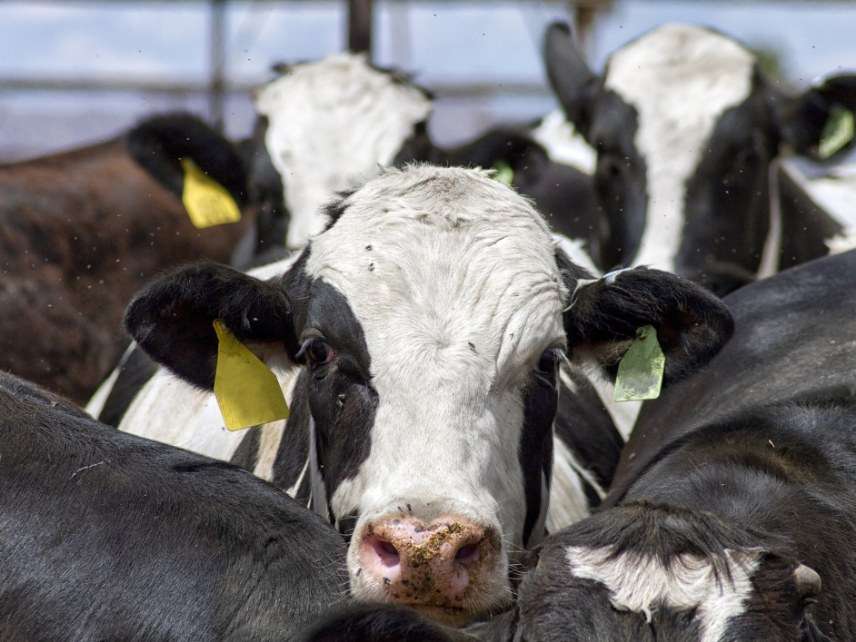Court Kills Most of Idaho's Law Against Secret Farm Recordings
A likely-fatal blow to to the state's censorious "ag gag" law

Last week, the Ninth Circuit Court of Appeals ruled that parts of Idaho's "ag gag" law are unconstitutional. The court upheld, in part, a U.S. District Court ruling from 2015 that found the Idaho criminal law runs afoul of the First Amendment.
Ag gag laws are on the books in seven states. As the Ninth Circuit explains, these laws "target[] undercover investigation of agricultural operations [and] broadly criminalize[] making misrepresentations to access an agricultural production facility as well as making audio and video recordings of the facility without the owner's consent."
Proponents of the Idaho law, including lawmakers, argued it was intended to "quash investigative reporting." A person convicted of violating the law faced up to one year in prison and a fine of up to $5,000.
The case decided last week, Animal Legal Defense Fund v. Wasden, saw several animal-rights and free-speech groups, including the ALDF and ACLU, join with others to sue Idaho in an effort to overturn an Idaho law that makes it illegal to snoop on agricultural producers. The 2014 law was drafted by the Idaho Dairymen's Association, which was unhappy when video taken by an animal rights group, Mercy for Animals, revealed abominable mistreatment of dairy cows in Idaho.
Does this decision throw open the doors of agricultural operations in Idaho to trespassers of all sorts? Hardly. "If, as Idaho argues, its real concern is trespass, then Idaho already has a prohibition against trespass that does not implicate speech in any way," the Ninth Circuit ruling notes.
I discuss the case (and ag gag laws more broadly) in my recent book, Biting the Hands that Feed Us: How Fewer, Smarter Laws Would Make Our Food System More Sustainable. I also organized more than a dozen fellow food-law faculty from around the country to sign on to an amicus brief in support of the ALDF and its fellow plaintiffs. And I attended oral arguments in the case in Seattle in May, which I wrote about here.
In our brief, we argued in favor of the value of the information that undercover investigations provide to consumers by making that information available within the marketplace of ideas. As the court rightly notes, "undercover investigative reporting… has brought about important and widespread change to the food industry, an arena at the forefront of public interest."
The good news in last week's the Ninth Circuit ruling is that the court effectively overturned the Idaho law. The court found that two key parts of the Idaho law—one prohibiting a person from misrepresenting themself to enter an agricultural production facility, the other banning a person from making audio or video recordings of a production facility—are unconstitutional. But the Ninth Circuit reversed the lower court, upholding the part of the Idaho law that criminalizes the act of obtaining agricultural production facility records by misrepresentation.
Supporters of ag gag laws did find a silver lining in last week's ruling.
"The big news in this decision is that lies or false speech can be 'criminalized' if made 'for the purpose of managerial gain or material advantage or if such speech inflicts a legally cognizable harm,'" writes Farm Futures columnist Gary Baise, an attorney and farmer.
But opponents of Idaho's law—and ag gag laws in general—should find much more to like in last week's ruling.
"The Ninth Circuit's decision in ALDF is an important victory for consumers," says Mahesha Subbaraman, the appellate attorney who drafted ands submitted the amicus brief on behalf of me and the other food-law scholars. "The decision ensures that consumers will continue to reap the benefits of investigative journalism directed at exposing the true conditions of food production."


Show Comments (48)